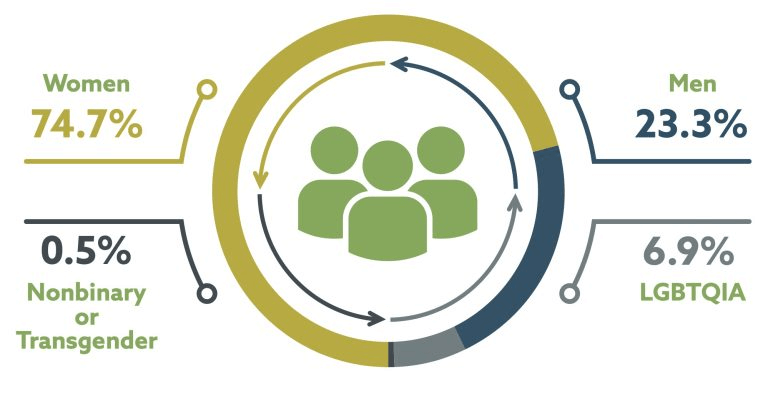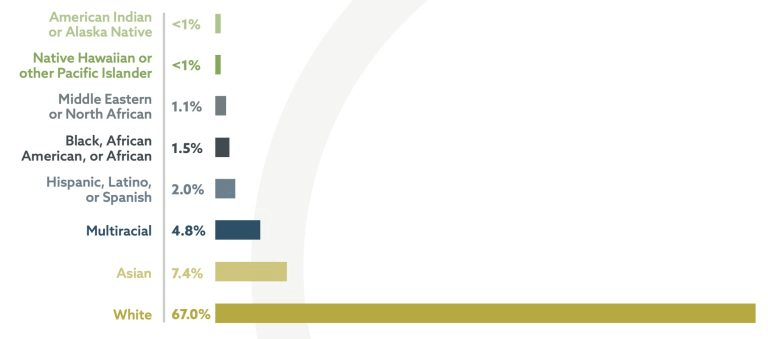Despite small gains in recent years, the genetics and genomics workforce lacks diversity. It does not reflect the make-up of students entering the workforce pipeline, nor the domestic and global populations it serves. The result reduces productivity, negatively skews research programs and outcomes, and falls short of realizing the business case or the justice case for diversity.
Prepared by the American Society of Human Genetics (ASHG), the “Human Genetics & Genomics Workforce Survey” shows that the majority of respondents in the genomics and genetics workforce were U.S citizens, identified as Women, identified as White, and were employed in a permanent position. The study concluded that the genetics and genomics workforce is insufficiently diverse, lacking equitable participation of underrepresented communities based on race and ethnicity, gender, disability, and economic background.
“Across the biomedical field, there is a need for expanding diversity of the scientific workforce,” said ASHG president Charles Rotimi, PhD. “The lack of diversity in the workforce impacts scientific innovation at every level along with global competitiveness and the ability to deliver new insights into human disease and health.”
Enduring gaps have hampered significant advancements in creating diverse research teams with equal access to jobs in research. To advance and ensure workforce diversity in genetics and genomics professions, associations, academic institutions, and corporate employers must collaboratively dismantle structural and cultural barriers unique to the industry.

































